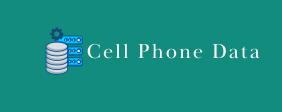SEO is important. Or so you’ve always heard but do you really know what it is? If you want to learn about this topic, this is a perfect guide to learn SEO and understand the most important concepts. In addition, you will find links that will take you to other articles, so you can delve deeper into the topics that interest you the most.
Creating an online marketing strategy always requires some SEO actions that will help you understand how to make your website appear on Google and make it usable by people. You can contact us to hire SEO services, as we are experts and we are willing to talk to you to provide you with the best service.
What is SEO?
SEO is all the strategies that are applied inside and outside your website to convince the search engine, like Google, to show your site among its first results. Simple? Yes and no.
It’s easy to understand, but every day we learn more about Google and its algorithms, so every day we have to adjust our SEO strategies to be at the forefront.
So, SEO is about having a good, consistent and functional website (so that users like it), but also fast, well-structured and easy to understand (so that Google analyzes it, understands it and recommends it).
Introduction and fundamentals of SEO
Learning SEO is a necessity in today’s world, where we are increasingly migrating towards a digital economy. Therefore, here we will look at some of the most important SEO concepts, how they are applied, and we will take you to other articles where you can delve deeper into those topics that interest you the most.
How do search engines work?
Google, like all search engines, wants to be how to build telemarketing data able to give users answers to their questions and solutions to their problems. So, depending on what a person asks Google, it will search through all the websites it has in its index and make a list of the best answers.
So, we understand the steps of how a search engine works
This is one of the first steps Google takes. There are computer bots, called spiders, that go around the Internet crawling all the websites that exist. They do this by following the links (hence the importance of internal linking ).
This way, Google discovers all the pages.
Another basic step in Google’s work is indexing now modern businesses have used digital which happens when your website (each of its pages) is added to Google’s index. That is, what is not indexed will never appear as an answer to a user’s question.
The index, then, is a digital library of everything Google has deemed useful.
Search results
Once Google has discovered, crawled and indexed your website, it needs to know where to place it in the list of options it displays every time someone asks it a question.
That’s where Google’s algorithms come in, which are all the factors that help it decide the order. There is still no complete understanding of how these algorithms work, but Google occasionally issues statements trying to explain the basics to us.
Thus, we know about 250 positioning factors.
Sitemaps or site maps
How can we help Google discover, crawl and index all of our pages? With a sitemap .
A sitemap is a file that we use to give Google all the information about our website: what the pages are, what image and video files we have, what the content of our site is like and how they are related to each other.
What is inbound marketing and how does it relate to SEO?
Therefore, SEO is only one of the fundamental agb directory strategies of this style of marketing, especially used to position blog posts .
SEO Basics
Continuing on your journey of learning SEO, let’s now look at some of the most important concepts you’ll need to learn in order to have a strong and consolidated SEO strategy:
On-Page SEO
In other words, they are all the SEO actions that we can do from our website.
Off-Page SEO
Off-Page SEO , on the other hand, is everything that is outside of your website that also helps you improve your positioning. Although there are many strategies for this, the most important and best-known is link building, which consists of getting other websites (from other domains) to link to yours.

